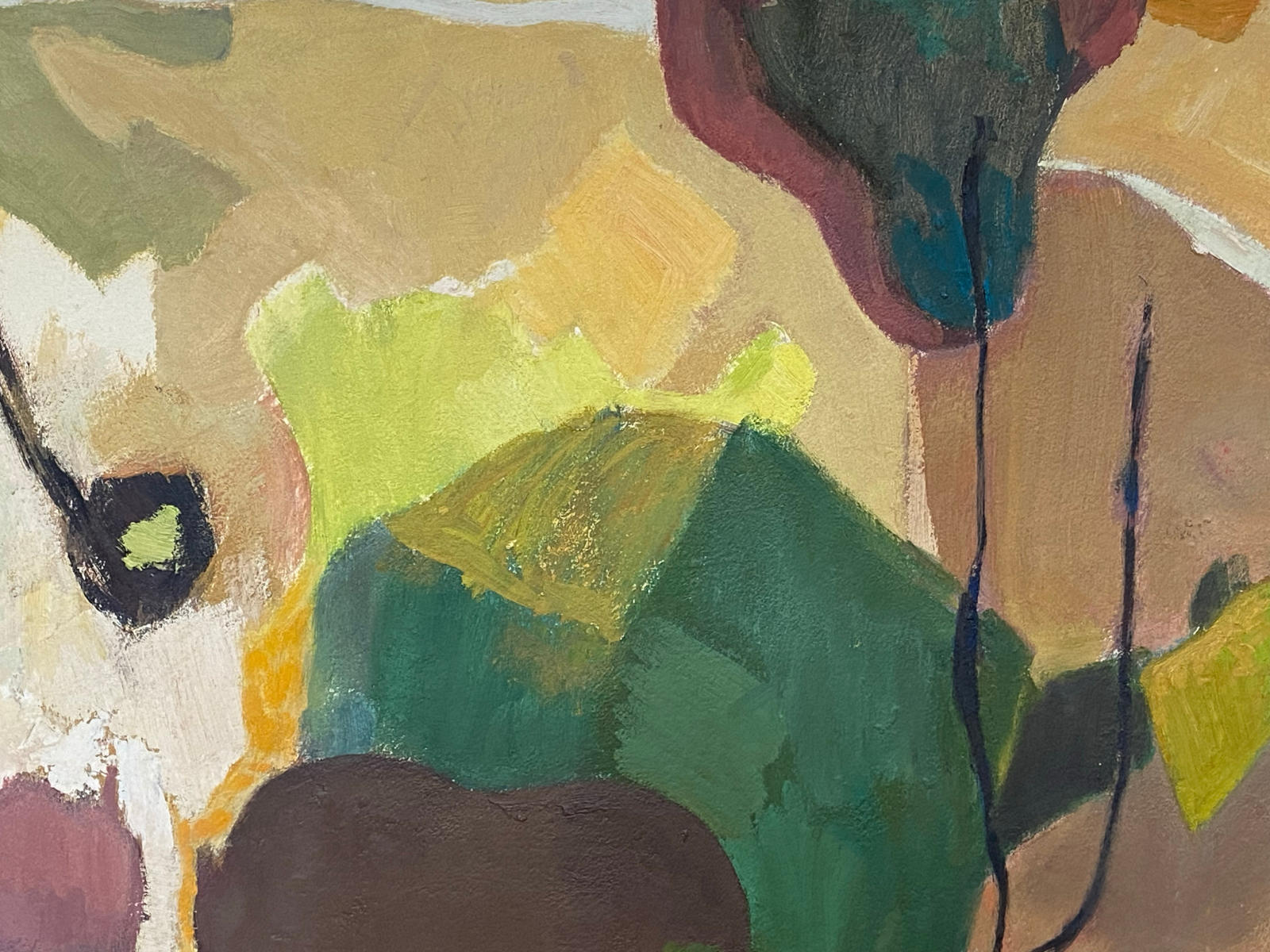











Framed: 30 1/2 x 33 x 2 inches
artist
1961 marks a pivotal moment in Totten’s career, departing from the subdued desert-inspired color palette that had characterized his previous work to embrace a more flamboyant and adventurous aesthetic, embarking on a creative exploration that resonated with the buoyant spirit of the era. This marked shift coincided with Totten’s deepening engagement with Synchromism, a movement spearheaded by Stanton MacDonald-Wright, under whose tutelage Totten had studied. Drawing inspiration from MacDonald-Wright, Totten absorbed the foundational principles of Synchromism, yet he always approached them as a catalyst for his own distinctive artistic vision.
Totten’s artistic process appears deceptively effortless, mirroring the demeanor of the man behind the brush. Modest, soft-spoken, and gentle, Totten embodied humility in his approach to his craft. Yet, beneath this unassuming exterior lay a profound commitment to his artistry. Immersed in the act of painting, Totten dedicated himself wholeheartedly to his practice, infusing each canvas with a palpable sense of daring and conviction.
To liken Totten’s oeuvre to that of luminaries such as Clifford Still or Edward Dugmore may seem audacious at first glance, however, upon closer examination, one discerns a shared mastery of abstract expressionism and a profound depth of artistic expression. Totten stands shoulder to shoulder with these titans, his capacity to produce profound abstract works attesting to his enduring legacy as a visionary artist.
Description
Totten’s work is often deeply rooted in his connection to the natural world, and this piece is no exception. The organic forms and vibrant colors evoke a sense of being outdoors, as if the viewer is transported to the very landscape that inspired the artist.
One can detect the influence of artists like Wassily Kandinsky, who believed that the interaction of colors and forms could generate a kind of visual music—a harmonious, sensory experience. In this painting, Totten harnesses that same principle, using organic shapes and interlocking forms to create a dynamic rhythm, emphasized by the meandering black lines of varying thickness. These lines, free-flowing and intuitive, seem to pulse with the artist’s touch, guiding the viewer through the composition like a musical score. The delicate use of white accents enhances this movement, binding the elements together and adding a sense of depth. Totten’s work ultimately invites the viewer to experience not just a representation of nature, but an embodiment of its rhythm and energy.











